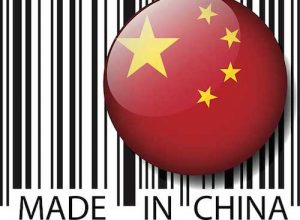 Chinese stocks were up 150 percent since last November and now they are down 35 percent since June. The popular business press is reporting more and more on the Chinese stock market up and downs. What’s going on? Should you care, and should you invest? Here are a few facts that will put you ahead of the discussion.
Chinese stocks were up 150 percent since last November and now they are down 35 percent since June. The popular business press is reporting more and more on the Chinese stock market up and downs. What’s going on? Should you care, and should you invest? Here are a few facts that will put you ahead of the discussion.
How big is China?
Really big. We all know China is the world’s most populous nation at 1.4 billion and the third biggest landmass after Russia and Antarctica, ahead of the US and Canada. What about its economy? Big, too. It’s the world’s second largest manufacturer, the second largest world economy, and now second largest stock market. With so many people, fast-growing cities and an immense appetite for goods and services, China’s big role in the world economy is undeniable and unlikely to go away.
China’s unicorns
Is China growing? Well, it has grown quite a bit. The Chinese stock market is only 25 years old and it’s up tenfold over that period. Go here if you would like to track the Shanghai and Shenzhen indexes via Bloomberg. The historical charts show plenty of up, even with recent declines. These are volatile markets, with daily gains and losses of several percent not uncommon.
If you are pondering future growth you could say there’s a lot of money riding on it. Of the world’s 102 unicorns (private startups worth more than $1 billion) China claims 11 of them, second only to the US. You may know big Chinese public companies like Alibaba and Baidu, but how about unicorns Kuaidi Dache ($8B) and Xiaomi ($46B)? Time will tell if these companies will succeed.
Off limits no more
Here’s the big news. Mainland Chinese stocks (A Shares) have been available for investment only to mainland Chinese citizens. Not for much longer. In less than 18 months you will be able to own A shares through ETFs. There’s a quota for US firms, with the big ones competing for access. Vanguard’s emerging markets fund, VWO, is taking the lead in incorporating A Shares. A Shares will be six percent of VWO before the end of next year. Some of the Chinese companies are big. Just as Apple’s weighting in the S&P 500 is almost four percent, Tencent’s weighting in VWO is also almost four percent. That’s four percent of the entire emerging markets universe.
China’s Darwin
Darwin demonstrated how the fittest species strive and thrive in the wild. It’s the same process at work in index ETFs – the most successful companies end up as the largest fund components. You don’t have to know or predict who the A Share winners are to benefit from their success. In our opinion, index ETFs are the ideal means to participate in the Chinese phenomenon. Plus, ETF investors will have a head start over everyone else because of the US quota system. For those ETF investors, markets will decide who wins – or not – as A Shares enter the global investment market.
John Osbon – josbon@osboncapital.com
Weekly Articles by Osbon Capital Management:
"*" indicates required fields
